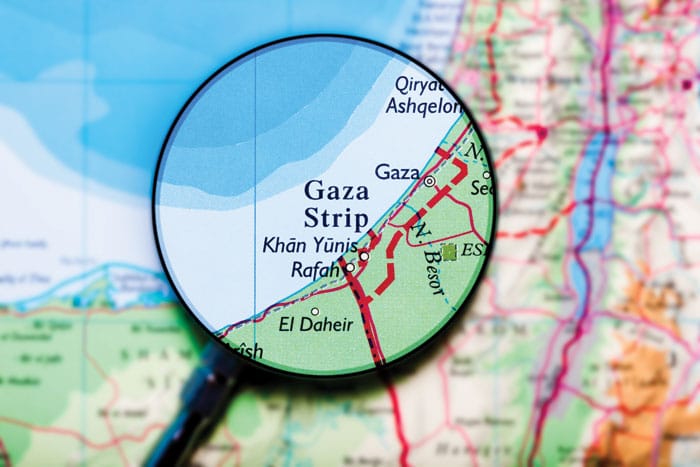 pawel.gaul/Getty Images
pawel.gaul/Getty Images Just in case you missed it, there was a war in Israel last weekend.
Because the hostilities lasted such a short time, and the number of casualties was relatively low, the conflict received a fairly small amount of media attention outside of the region. But the missiles flying between Israel and Gaza were still a stark reminder that for all the diplomatic and economic progress that has occurred between the Jewish State and many of its Arab neighbors in recent years, the path to actual and sustainable peace in the Middle East is still a long way off.
Unlike last year’s war with Hamas, the 2022 version was provoked by the Palestinian Islamic Jihad (PIJ), Gaza’s smaller, older and weaker terrorist organization. After Israeli security arrested a senior Jihad leader earlier in the week, Mossad agents picked up warnings of an imminent PIJ attack against Israeli civilian targets. On Friday afternoon, Prime Minister Yair Lapid and Defense Minister Benny Gantz authorized missile strikes on Jihadi military instillations. By Sunday night, a ceasefire was in effect, and the weekend war had concluded before most of the world had noticed that it had begun.
Just because the conflict was fleeting doesn’t mean that there weren’t valuable lessons to be learned from what had – and hadn’t – occurred.
But just because the conflict was fleeting doesn’t mean that there weren’t valuable lessons to be learned from what had – and hadn’t – occurred. Most notable was the wise decision of Hamas to stay out of the fight. Because Hamas is not only a terrorist group but also a governing entity, their leaders have begun to understand that they have some responsibility for the lives and well-being of their constituents. Since the conclusion of last year’s 11-day war, Israel has increased the number of work permits for Gaza residents that allow them to enter Israel for jobs. Hamas realized that joining the jihadists’ latest battle would cause much of that Israeli economic support to disappear, and so by staying on the sidelines, they were able to maintain job opportunities and economic growth possibilities for Gaza residents.
Most of Israel’s neighbors came to similar conclusions, deciding that their own long-term interests precluded a more aggressive response toward Israel’s military engagement. Egypt, Jordan and Qatar brokered the ceasefire, and all but one of the countries that joined the Abraham Accords refrained from criticizing Israel about the conflict. The threat posed by Iran has convinced many of Israel’s long-term antagonists that cooperation of Israel is necessary to protect against the Iranian menace, and the lack of public reaction throughout the Arab world throughout the three days of missile strikes was conspicuous.
However, the war with Islamic Jihad did have significant repercussions on Israel’s domestic political landscape. Lapid, who has less military experience than any leader in the nation’s history, leaned heavily on Gantz throughout the conflict, staying close publicly and privately to the respected former general. Lapid also scored a major public relations victory by getting former Prime Minister Benjamin Netanyahu to join him for a security briefing on the situation, which gave Lapid significant credibility both on military matters and as a political unifier. Both will serve him well when Israeli voters go to the polls again later this fall.
But the most remarkable aspect of Israel’s latest war is how unremarkable it was. Unlike last year’s battle with Hamas that roiled both Israel and the broader Middle East, this conflict with Islamic Jihad seems to have had almost no impact on the international geopolitical landscape at all. The vaunted Iron Dome defense system intercepted almost every PIJ missile strike, with the few that were not shot down landing in less populated areas. There were no Israeli deaths and only a few dozen injuries that resulted from the attacks.
More than forty Palestinians died over the few days, and while most were jihadist terrorists, there were several civilians killed as well (mostly by errant PIJ missiles). There will always be terrorists willing to sacrifice innocent lives to achieve their goals, and the Middle East has more than its share of such zealots. But even if we pay them little attention, the sobering reality is that they are not going away.
Dan Schnur is a Professor at the University of California – Berkeley, USC and Pepperdine. Join Dan for his weekly webinar “Politics in the Time of Coronavirus” (www/lawac.org) on Tuesdays at 5 PM.























 More news and opinions than at a Shabbat dinner, right in your inbox.
More news and opinions than at a Shabbat dinner, right in your inbox.